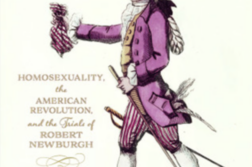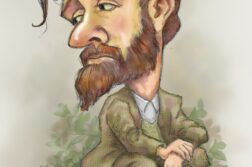“The West thinks of itself as masculine—big guns, big industry, big money—so the East is feminine—weak, delicate, poor … but good at art, and full of inscrutable wisdom—the feminine mystique … I am an Oriental. And being an Oriental, I could never be completely a man.”
— Song Linling in M Butterfly
IN THE CRITICALLY ACCLAIMED play M Butterfly, by David Henry Hwang, the main character, Song Linling, explains his ability to fool a French lieutenant into believing that he was a woman for nearly two decades, a feat based not on his mastery of deception but on the lieutenant’s inability to see him as anything other than a woman. For decades, the mainstream media have usually portrayed Asian men as meek, asexual houseboy types or as sexual deviants of some kind. When it comes to attitudes about sex, Asian-American men have generally been portrayed as being on the “traditional” or “conservative” side of the spectrum. Recently the magazine Details, which caters to “hip, young, urban males,” prominently featured an item entitled “Gay or Asian,” and challenged its readers to ascertain whether a given man was, in fact, gay or Asian. Interestingly enough, while the broader Asian-American community mounted a protest against the presentation of Asian men as “gay,” the larger gay community stood silently by.





